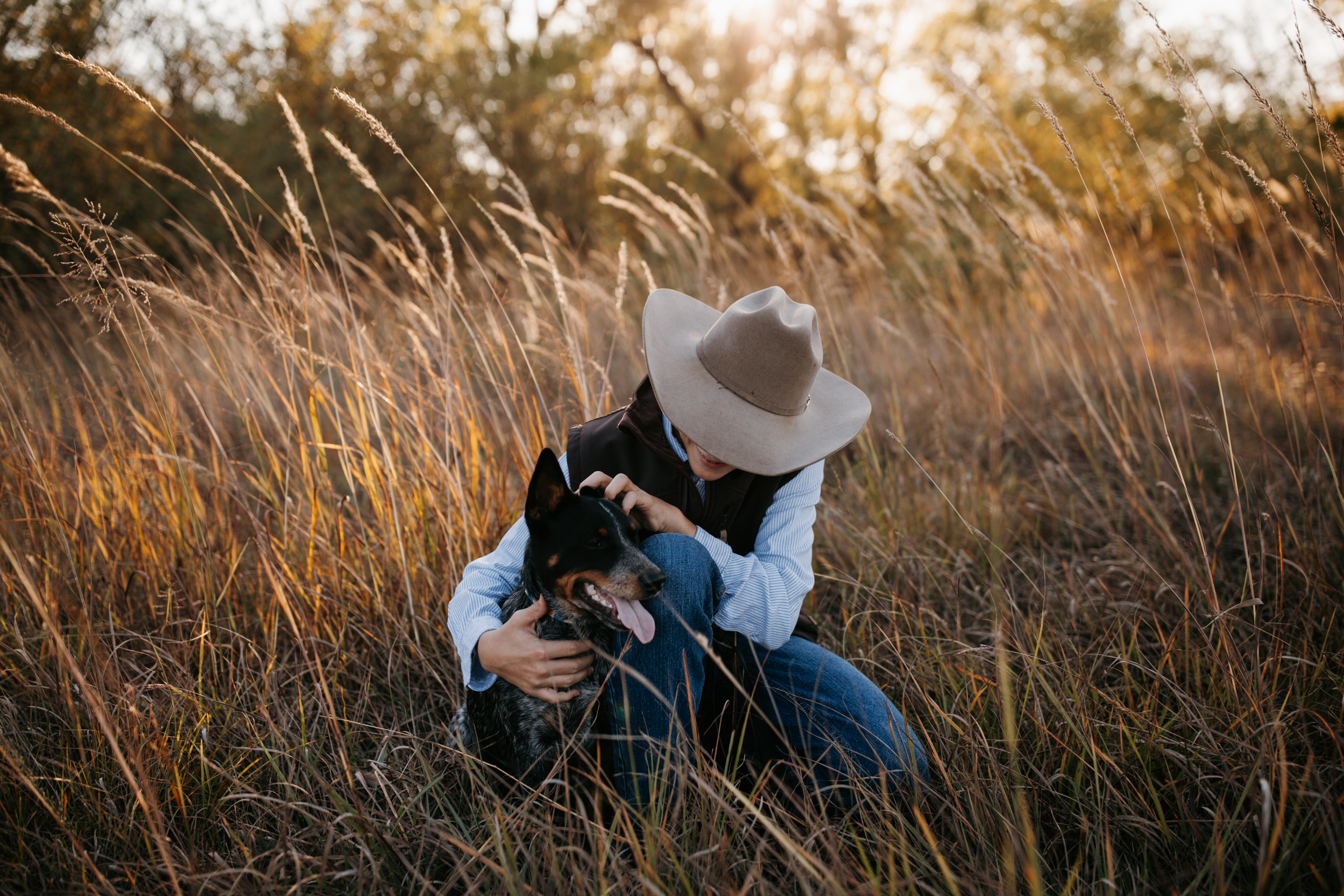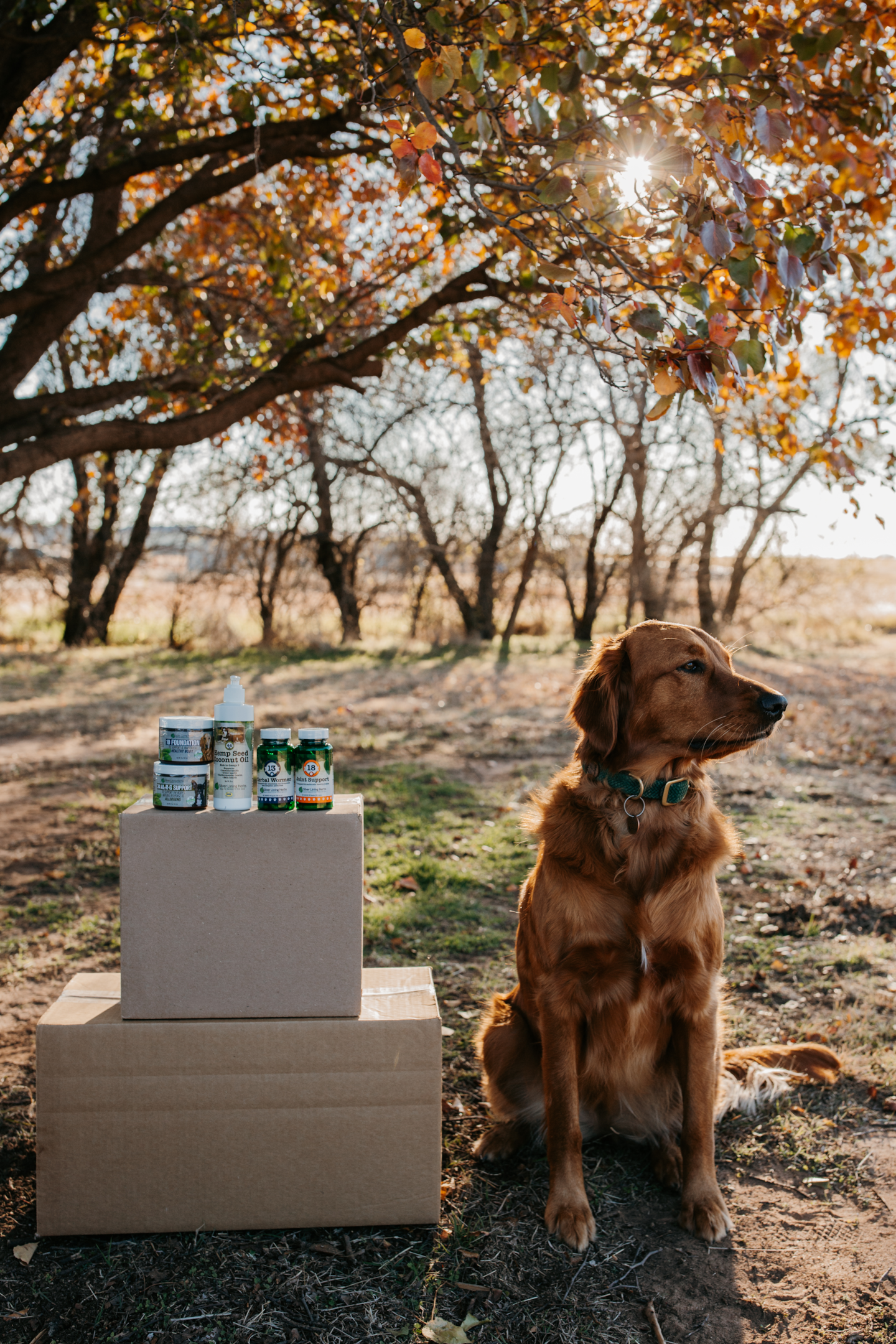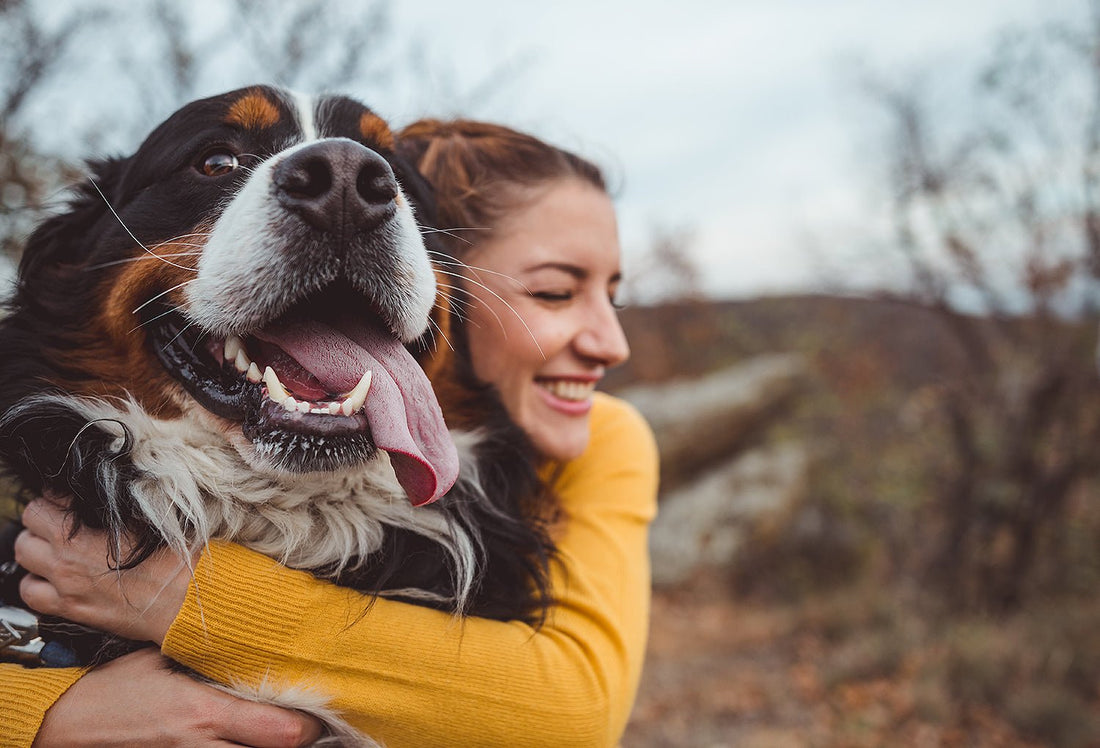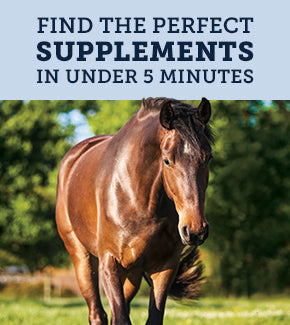Each season can affect your dog’s immune system in different ways. Whether you are new to the detox process or have been introduced to it before, your dog's body deserves the best treatment. Environmental toxins may indeed change as the seasons change. You can protect your pet's exposure to the elements by detoxing your pet’s body and helping them avoid these many toxins in your home. But does a dog detox really keep your pet happy and healthy? The answer is yes. Read along with us at Silver Lining Herbs, as we'll describe what detoxes are (and aren't) and how to improve your dog’s body condition and health with detoxes for every season of the year.
What exactly is a detox?
We’ve heard of the word detox before. Heck, some of us have detoxed ourselves to manage our body weight and enhance our immune system’s functioning.
Healthy pets also need detoxes. A detox is a diet in which we choose to abstain from certain foods or drinks for some time to rid our bodies of harmful water-soluble toxins.
For our friendly canines, a detox for dogs requires changing their diet and reducing their exposure to fat-soluble toxins found in their food and water sources.
What a detox is not
A detox is not a quick fix. It is not advised to use it as a seasonal, one-time fix-all solution used to cleanse your dog's body of commercially processed foods. It is not an herbal supplement alone, nor a quick change one can make to change a dog’s diet for the better.
To detox your dog correctly, you must provide regular, seasonal care to your dog for all of its digestive, physical, and behavioral needs. It means checking in on your dog's liver for liver disease, taking care of your pet's skin (by brushing off dead skin cells regularly, for example with a natural bristle brush), and being proactive to ensure your dog and horse receive enough nutrients, have access to fresh water, and eat foods high in vitamin C, among other minerals.
A detox is not a fad, it is a lifestyle that can be built to support your courageous canine from toxic substances. It’s easier than you think. Let’s look at how it’s done.
How does a dog detox work?
Detoxes are practices and health plans that focus on changing a pet's diet, reducing the number of toxins and trace minerals in your dog’s diet, and that help your dog's immune system function at peak capacity.
This could mean introducing antioxidant vitamins to your dog’s diet with new foods, reducing exposure to synthetic vitamins that could harm your pet's organs, or even keeping tabs on how your new foods affect your dog's gut.
How a toxic environment can affect your dog's health
What do weed killers, household cleaners, and chemical pest repellants all have in common? They all are outdoor toxins that can affect your dog's skin (yuck!).
Examples of toxins are heavy metals and other unwanted, added harmful chemicals that can impact your dog's health. These extra chemicals can show up in fertilizer, cleaning products, and even air fresheners around the house.
What’s the net result on your loveable dog and horse? Your horse or dog’s health will sadly decline.
Key areas for keeping dogs healthy
That’s why we say no to bug killers and other household chemicals that can affect your dog's ability to live a healthy life. Instead, we say yes to fresh air as a way to eliminate toxins from your dog's environment. Here are a few key areas we suggest looking at when creating a detox for dogs.
Common ways to naturally detox your dog's body
Kidney disease, leaky gut, and your dog's liver have your furry friend awake at night again (Oy!)? These are just some of the body conditions and parts you’ll find that affect your pet’s health.
It’s important to look at your dog's body — everything from kidneys, liver, gut, heart rate, skin, and gastrointestinal tract (for bowel movements and urination) to ensure your pet can flush toxins from their body. doesn’t go dog-gone wild from illness.
If you’re wondering how to make sure your pet doesn't go dog-gone wild from illness, we'll share some of the behaviors and signs that indicate your dog's system might be out of sync.
Physical and behavioral signs of healthy horses and dogs
“Dog days” is not just an expression. If a dog has its ears down, is not moving much, or seems more tired than usual, it may be exhibiting symptoms of depression.
If dogs could talk, it would save us all a huge headache in helping us diagnose their issues. They don't (unfortunately). So, while we wait for evolution to churn out speaking dogs, we must settle for discerning our kooky dogs’ needs by observing their behaviors.
Dogs will start showing liver and kidney issues — among other illnesses — in how they stand and move, as well as through the emotions and behaviors they display.
You can ensure they stay healthy and without the need for a detox by checking on the following physical and behavioral health indicators:
Vital Signs

They’re the key to the gate, the link in the chain, and pièce de résistance for knowing whether your dog is in trouble.
While every animal is different, it’s helpful to keep a vital signs monitor near your canine friend to make sure that an irregular, fast, or slow heartbeat is not a symptom or sign of something more serious down the road — such as an issue residing in their digestive system or abdomen.
Appetite
Speaking of the digestive system, your dog will often show a need for gentle detoxification if they are having issues with its GI tract.
Sick dogs with stomach issues eat slower, pick through their food, tend to leave food uneaten, or stop eating altogether.
If your dog's stomach is gurgling and emitting gas-like growls, this is normal.
However, if you’re not hearing any sounds coming from your canine stomach, it’s time to check if your dog is experiencing food allergies or if your dog needs new pet food that is easier on its digestive system.
Attitude
You know how it feels when you haven’t eaten in a while. Your stomach growls, and your immune system ramps up its protests, crying out, “Hey, you! Feed me!”
Most pets and animals act the same way when it comes to their food and being around other animals. Dogs love to be around their kin and run around (well, at least most of them).
If your dog is not as active (or not running into your neighbors’ yards like our dogs do), is preferring to be alone, and is sleeping more than usual, any one of these clusters of symptoms might be the result of a diet that needs changing for your dog.
Worse yet is if more frequent weight changes occur, weight change being the subject of our next section.
Maintaining an ideal weight

Every dog and animal has a different and ideal weight. For dogs, we tend to use a traditional scale to measure weight.
It's worth learning how you can boost nutrients in your dog's diet to ensure your furry friend's well-being.
Posture
When an animal is healthy, they distribute weight evenly through all four feet. They look spry and move with grace wherever they may prance.
The same applies to your furry canine. Keeping their paws clean after walks will reduce the number of bumps, cuts, or even scratches that could result. With each additional bump or scratch, the risk of infection and illness can increase.
If you are proactive from the get-go, there will be no need for a detox.
Thirst, defecation, and urination
If your loveable equine or canine friend is drinking less than the daily advised amount of water, this could be a signal that something is off with their health.
It's important to check what they're eating as well. It's worth checking your dog's mouth in case they eat something from the ground that could harm their stomachs. It's not uncommon for dogs to eat grass that's been sprayed with weed killer. Accidental ingestion of poisonous substances can affect their GI tract, as well as how regularly they use the loo.
It's worth learning best practices for helping your pet stay hydrated and keep their intestines moving — bowel moving, that is — smooth and easy.
Tips to maximize the benefits of detox for dogs
Whether you’re considering a kidney, food, or liver detox for your animal, your animal deserves a detox that truly heals them. We’ve dug into the research and found a few key tips that are useful for all animals — dogs and horses alike — tips that can help your dog maintain optimal body weight and immune system functioning.
1. Make sure your dog is drinking filtered water
The same tips that go for humans apply to our sweet animal friends. Filtered water includes less of a toxic load, thereby decreasing the risk of having a leaky gut.
What’s more, it’s better for a pet’s immune system and liver if your pet drinks unfiltered water rather than ingests toxins in tap water. Consider setting aside gallon jugs for your dog friends before the day begins, to ensure they are ready for anything and everything.
2. Eat plenty of whole foods rich in nutrients
Picture yourself eating a sweaty, greasy McDonald's cheeseburger for every meal of the day. That’s a ton of protein and not a whole lot of vitamin E, huh?
In our modern world, our animals are eating the equivalent of McDonald's over-processed food. For example, our dogs (most of them at least) eat the same processed, nutrient-poor food most days and meals of the week. So, it’s no wonder that the foods we give our pets contribute to the decline in their health.
Consider feeding your animal a diet rich in nutrient-dense food (like these calming herbs) and healthy vegetables like brussels sprouts, kale, milk thistle, and spinach. Herbs like milk thistle contain key amino acids and digestive enzymes that are crucial for helping your pet’s liver remain active and strong throughout their lives.
3. Daily movement and exercise
Just as daily exercise and movement are good for our body, it is also helpful for our dog's bodies. The regular movement ensures that blood flows to all the important parts of our bodies and keeps our bodies well-lubed (similar to how the right motor oil can help a car run smoothly oil).
If we do not have proper blood flowing to each of our organs, our health will be impacted.
One way to check if your canine friend needs a detox is by checking your dog's mouth for blood flow to their gums. To do so, press your dog's gums gently. Their gums and mucous membranes should feel moist, turn white briefly, and then return to a healthy, light pink color after about one to two seconds. If their gums do not return to that light pink color, there could be a problem with your dog's health.
Likewise, if your dog has slightly cloudy eyes, your canine friend might be suffering from a lack of blood flow to the eyes. We recommend making sure your canine friends engage in plenty of regular exercise, as exercise helps increase blood flow and reduce inflammation. That way, you'll ensure your dog and horse do not need a detox in the future.
Need ideas for where to start? Try a walk, a freshwater dog swim, or even a game of frisbee. Each time you exercise with your dog, you're helping them detox harmful toxins from their bodies.
4. Support your dog's kidneys and liver

Most detoxes are needed as a response to intestinal and organ issues — like the kidney and liver — that arise on a seasonal basis.
That is why in the spring and fall we suggest using Liver Support and Kidney Support for 30-60 days on all dogs. Whether you have an older dachshund or a new puppy, most dogs don’t have thousands of acres to roam to glean all the variety of nutrients and food they need for a proper diet.
It is likely up to us to supply our pets with proper nutrients, so they don't succumb to further liver issues. After all, if we're not giving it to them, they aren’t eating it.
You can feed your dog liver from other animals, as feeding liver from different animals helps give them the digestive enzymes and amino acids needed to improve your pet’s kidneys and overall health.
5. Avoid pest control and weed killers
Many of our pets and animals pick up illnesses by accidentally ingesting harmful chemicals and fertilizers.
To detox your dog from most toxins eaten off the ground, make sure to refrain from treating your yards or grazing areas with harmful chemicals, as your dog might stumble across a yummy-looking reed of grass that's full of yucky poisons.
6. Raw food is the way to go
Your pet’s food can also be a source for a healthy detox! An ideal detox for a dog includes a diet consisting of cruciferous vegetables.
Make sure your dog eats a diet of herbs like milk thistle or protein-rich foods (no more than 10% of their foods), as these foods include helpful amino acids for digestion. With a diet dense in nutrients, your dog will be on its way toward maintaining optimal body condition.
Plus, whatever leftover broccoli sprouts or milk thistle you don’t eat the day of can always be made into compost or fed to your dog the next day. You’re helping detox your dog and saving the environment.
It's a win-win any way you slice it.
Final thoughts
Detoxes come in all shapes and sizes, but all of them help reduce symptoms associated with illness. Most detoxes work by healing various parts of an animal’s body.
Whether it's apple cider vinegar rinse, milk thistle, dog food supplements, raw food, or daily exercise, proactive care is the key to helping your dog maintain optimal health year-round.
At Silver Lining Herbs, we use 100% raw and pure, grade-A ingredients in all of our supplements. Whatever you or your dog may stumble upon on life's winding road, we’re here to help you make it through it. That way, we can all live and thrive, one week, one day, and one happy moment at a time.
At Silver Lining Herbs, we believe the best health an animal can get is 100% natural. Our goal is to create herbal supplements that keep our animals at their peak — feeling well and performing well — for years to come. Family-owned and operated for nearly two decades, we invite you to have a look around our shop for dogs, horses, and humans. If you like what you see or just feel like talking further, don’t hesitate to contact us. We’d love to hear from you!







